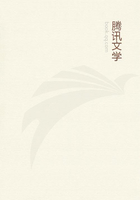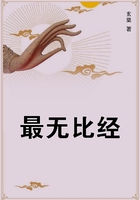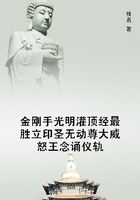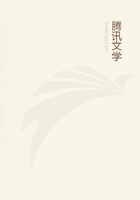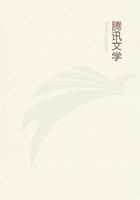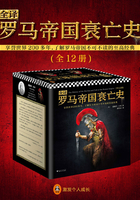Understanding prescribes laws a priori for nature as an object of sense, so that we may have a theoretical knowledge of it in a possible experience.Reason prescribes laws a priori for freedom and its peculiar causality as the supersensible in the subject, so that we may have a purely practical knowledge.The realm of the concept of nature under the one legislation, and that of the concept of freedom under the other, are completely cut off from all reciprocal influence, that they might severally (each according to its own principles) exert upon the other, by the broad gulf that divides the supersensible from phenomena.The concept of freedom determines nothing in respect of the theoretical cognition of nature; and the concept of nature likewise nothing in respect of the practical laws of freedom.To that extent, then, it is not possible to throw a bridge from the one realm to the other.Yet although the determining grounds of causality according to the concept of freedom (and the practical rule that this contains) have no place in nature, and the sensible cannot determine the supersensible in the subject; still the converse is possible (not, it is true, in respect of the knowledge of nature, but of the consequences arising from the supersensible and bearing on the sensible).So much indeed is implied in the concept of a causality by freedom, the operation of which, in conformity with the formal laws of freedom, is to take effect in the word.The word cause, however, in its application to the supersensible only signifies the ground that determines the causality of things of nature to an effect in conformity with their appropriate natural laws, but at the same time also in unison with the formal principle of the laws of reason-a ground which, while its possibility is impenetrable, may still be completely cleared of the charge of contradiction that it is alleged to involve. The effect in accordance with the concept of freedom is the final end which (or the manifestation of which in the sensible world) is to exist, and this presupposes the condition of the possibility of that end in nature (i.e., in the nature of the subject as a being of the sensible world, namely, as man).It is so presupposed a priori, and without regard to the practical, by judgement.This faculty, with its concept of a finality of nature, provides us with the mediating concept between concepts of nature and the concept of freedom-a concept that makes possible the transition from the pure theoretical [legislation of understanding] to the pure practical [legislation of reason] and from conformity to law in accordance with the former to final ends according to the latter.For through that concept we cognize the possibility of the final end that can only be actualized in nature and in harmony with its laws.
One of the various supposed contradictions in this complete distinction of the causality of nature from that through freedom is expressed in the objection that when I speak of hindrances opposed by nature to causality according to laws of freedom (moral laws) or of assistance lent to it by nature, I am all the time admitting an influence of the former upon the latter.But the misinterpretation is easily avoided, if attention is only paid to the meaning of the statement.The resistance or furtherance is not between nature and freedom, but between the former as phenomenon and the effects of the latter as phenomena in the world of sense.Even the causality of freedom (of pure and practical reason) is the causality of a natural cause subordinated to freedom (a causality of the subject regarded as man, and consequently as a phenomenon), and one, the ground of whose determination is contained in the intelligible, that is thought under freedom, in a manner that is not further or otherwise explicable (just as in the case of that intelligible that forms the supersensible substrate of nature.)Understanding, by the possibility of its supplying a priori laws for nature, furnishes a proof of the fact that nature is cognized by us only as phenomenon, and in so doing points to its having a supersensible substrate; but this substrate it leaves quite undetermined.judgement by the a priori principle of its estimation of nature according to its possible particular laws provides this supersensible substrate (within as well as without us) with determinability through the intellectual faculty.But reason gives determination to the same a priori by its practical law.Thus judgement makes possible the transition from the realm of the concept of nature to that of the concept of freedom.
In respect of the faculties of the soul generally, regarded as higher faculties, i.e., as faculties containing an autonomy, understanding is the one that contains the constitutive a priori principles for the faculty of cognition (the theoretical knowledge of nature).The feeling pleasure and displeasure is provided for by the judgement in its independence from concepts and from sensations that refer to the determination of the faculty of desire and would thus be capable of being immediately practical.For the faculty of desire there is reason, which is practical without mediation of any pleasure of whatsoever origin, and which determines for it, as a higher faculty, the final end that is attended at the same time with pure intellectual delight in the object.judgement's concept of a finality of nature falls, besides, under the head of natural concepts, but only as a regulative principle of the cognitive faculties-although the aesthetic judgement on certain objects (of nature or of art) which occasions that concept, is a constitutive principle in respect of the feeling of pleasure or displeasure.The spontaneity in the play of the cognitive faculties whose harmonious accord contains the ground of this pleasure, makes the concept in question, in its consequences, a suitable mediating link connecting the realm of the concept of nature with that of the concept of freedom, as this accord at the same time promotes the sensibility of the mind for or moral feeling.The following table may facilitate the review of all the above faculties in their systematic unity.It has been thought somewhat suspicious that my divisions in pure philosophy should almost always come out threefold.But it is due to the nature of the case.If a division is to be a priori it must be either analytic, according to the law of contradiction-and then it is always twofold (quodlibet ens est aut A aut non A)-Or else it is synthetic.If it is to be derived in the latter case from a priori concepts (not, as in mathematics, from the a priori intuition corresponding to the concept), then, to meet the requirements of synthetic unity in general, namely (1) a condition, (2) a conditioned, (3) the concept arising from the union of the conditioned with its condition, the division must of necessity be trichotomous.

